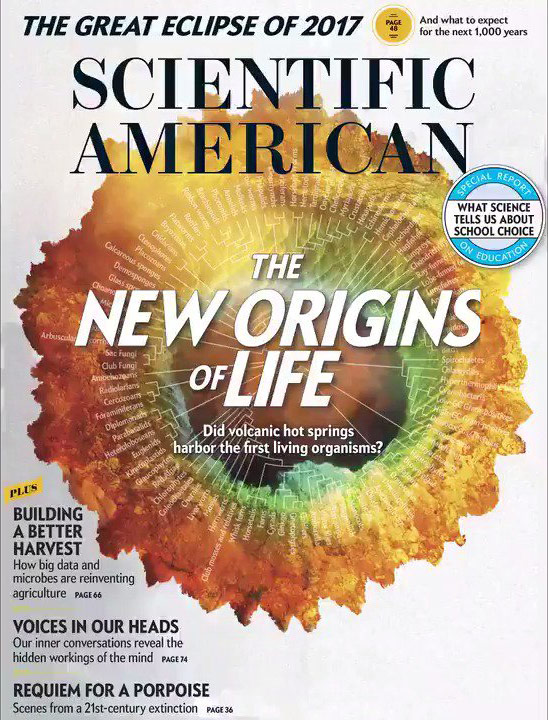Google as a window into our private thoughts
What are the weirdest questions you’ve ever Googled? Mine might be (for my latest book): “How many people have ever lived?” “What do people think about just before death?” and “How many bits would it take to resurrect in a virtual reality everyone who ever lived?” (It’s 10 to the power of 10123.) Using Google’s autocomplete and Keyword Planner tools, U.K.-based Internet company Digitaloft generated a list of what it considers 20 of the craziest searches, including “Am I pregnant?” “Are aliens real?” “Why do men have nipples?” “Is the world flat?” and “Can a man get pregnant?”
This is all very entertaining, but according to economist Seth Stephens-Davidowitz, who worked at Google as a data scientist (he is now an op-ed writer for the New York Times), such searches may act as a “digital truth serum” for deeper and darker thoughts. As he explains in his book Everybody Lies: Big Data, New Data, and What the Internet Can Tell Us About Who We Really Are (Dey Street Books, 2017), “In the pre-digital age, people hid their embarrassing thoughts from other people. In the digital age, they still hide them from other people, but not from the internet and in particular sites such as Google and PornHub, which protect their anonymity.” Employing big data research tools “allows us to finally see what people really want and really do, not what they say they want and say they do.” (continue reading…)
read or write comments (8)
The roots of the current campus madness
In a 1946 essay in the London Tribune entitled “In Front of Your Nose,” George Orwell noted that “we are all capable of believing things which we know to be untrue, and then, when we are finally proved wrong, impudently twisting the facts so as to show that we were right. Intellectually, it is possible to carry on this process for an indefinite time: the only check on it is that sooner or later a false belief bumps up against solid reality, usually on a battlefield.”
The intellectual battlefields today are on college campuses, where students’ deep convictions about race, ethnicity, gender and sexual orientation and their social justice antipathy toward capitalism, imperialism, racism, white privilege, misogyny and “cissexist heteropatriarchy” have bumped up against the reality of contradictory facts and opposing views, leading to campus chaos and even violence. Students at the University of California, Berkeley, and outside agitators, for example, rioted at the mere mention that conservative firebrands Milo Yiannopoulos and Ann Coulter had been invited to speak (in the end, they never did). Middlebury College students physically attacked libertarian author Charles Murray and his liberal host, professor Allison Stanger, pulling her hair, twisting her neck and sending her to the ER. (continue reading…)
read or write comments (2)
Private thoughts and public acts
Novelists often offer deep insights into the human psyche that take psychologists years to test. In his 1864 Notes from Underground, for example, Russian novelist Fyodor Dostoyevsky observed: “Every man has reminiscences which he would not tell to everyone, but only to his friends. He has other matters in his mind which he would not reveal even to his friends, but only to himself, and that in secret. But there are other things which a man is afraid to tell even to himself, and every decent man has a number of such things stored away in his mind.”
Intuitively, the observation rings true, but is it true experimentally? Twenty years ago social psychologists Anthony Greenwald, Mahzarin Banaji and Brian Nosek developed an instrument called the Implicit Association Test (IAT) that, they claimed, can read the innermost thoughts that you are afraid to tell even yourself. And those thoughts appear to be dark and prejudiced: we favor white over black, young over old, thin over fat, straight over gay, able over disabled, and more. (continue reading…)
read or write comments (21)
Why cops kill
The ongoing rash of police using deadly force against minority citizens has triggered a search for a universal cause—most commonly identified as racism. Such soul searching is understandable, especially in light of the racist e-mails uncovered in the Ferguson, Mo., police department by the U.S. Department of Justice’s investigation into the death of 18-year-old Michael Brown.
To whatever extent prejudice still percolates in the minds of a few cops in a handful of pockets of American society (nothing like 50 years ago), it does not explain the many interactions between white police and minority citizens that unfold without incident every year or the thousands of cases of assaults on police that do not end in police deaths (49,851 in 2013, according to the FBI). What in the brains of cops or citizens leads either group to erupt in violence?
An answer may be found deep inside the brain, where a neural network stitches together three structures into what neuroscientist Jaak Panksepp calls the rage circuit: (1) the periaqueductal gray (it coordinates incoming stimuli and outgoing motor responses); (2) the hypothalamus (it regulates the release of adrenaline and testosterone as related to motivation and emotion); and (3) the amygdala (associated with automatic emotional responses, especially fear, it lights up in response to an angry face; patients with damage to this area have difficultly assessing emotions in others). When Panksepp electrically stimulated the rage circuit of a cat, it leaped toward his head with claws and fangs bared. Humans similarly stimulated reported feeling uncontrollable anger. (continue reading…)
read or write comments (32)
After a paroxysm of racial viciousness at the Laugh Factory Friday night, November 17, 2006, Michael Richards, the 57-year old comedian who played Kramer on Seinfeld, explained to David Letterman and his Late Night audience the following Monday, after a barrage of negative publicity: “I’m not a racist. That’s what’s so insane about this.” (continue reading…)
read or write comments (6)





